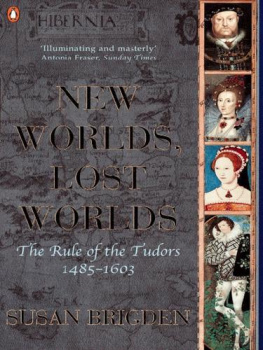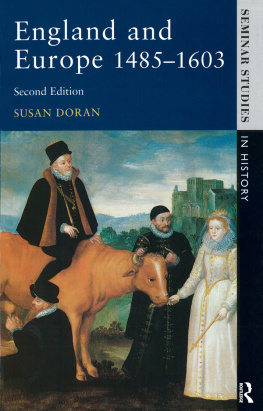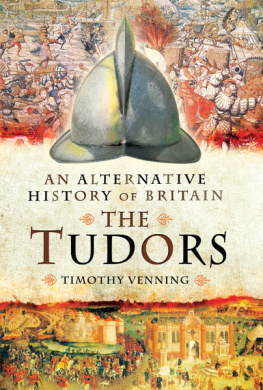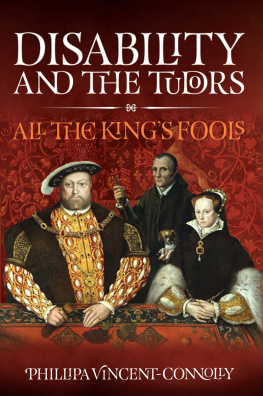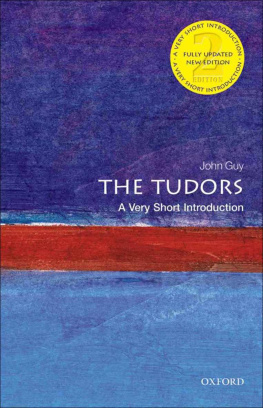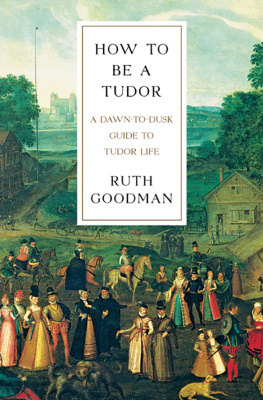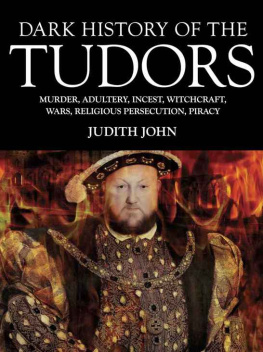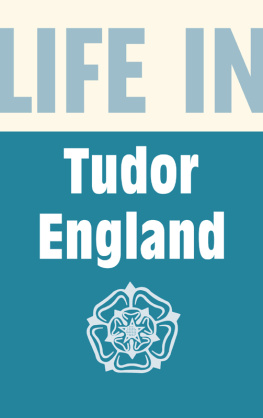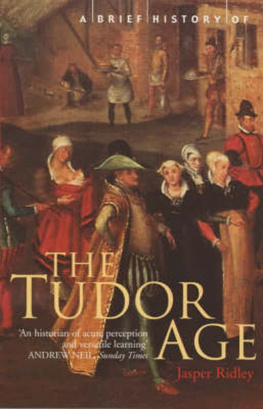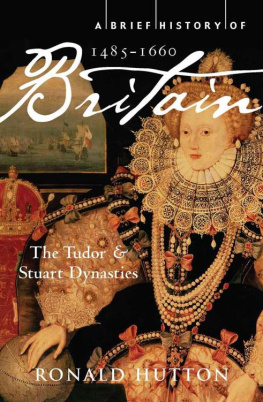ABOUT THE AUTHOR
Susan Brigden is Fellow and Tutor in Modern History at Lincoln College, Oxford. She is the author of London and the Reformation.
Epilogue
LOST WORLDS , NEW WORLDS
On the festival of Holy Cross in September 1607 the Earls of Tyrone and Tirconnell, and the chiefs Maguire and Magennis, with their families and followers, and leading Anglo-Irish families of north Leinster set sail from Ulster, pre-empting their arrest. They sought sanctuary in the Spanish Netherlands, for a time. ONeill and Rory ODonnell had been pardoned after Kinsale and confirmed in their vast estates with the titles of Earls of Tyrone and Tirconnell, yet they had never intended their submission to last. The fears and rumours among the English governors that the Earls were still in league with Spain, and that they were conspiring with the Anglo-Irish community to renew revolt in the name of the Catholic faith, were not unfounded. As official religious policy turned to repression, the Anglo-Irish, who had held back from joining Tyrone in rebellion before, now began to countenance it. The Four Masters lamented the Earls precipitate decision: Woe to the heart that meditated setting out on this voyage, without knowing whether they should ever return to the end of the world. They never did. Sanctuary became permanent exile.
With the flight of the Earls, the independent Gaelic order in Ulster, in Ireland, passed. The power of the Gaelic lords was broken, their great estates confiscated, their private alliances and armies disbanded, their followers leaderless. Ulster was reduced to submission by garrisons. Desolate and waste, it was at last the razed table which English hardliners had advocated. Ireland lay open to colonizers, who not only enriched themselves but saw a right and a duty to impose law, civility and the Protestant religion. A new world of English and Scottish planters came to banish Ireland.
As the Queen died, political and military conquest had not brought spiritual conquest. There were two contending Churches within the island: the Church of Ireland official and Protestant was taking over and stripping the parish churches, but not winning hearts and minds; the Church of Rome, whose priests celebrated unofficially in massing houses, held the peoples allegiance. In Ireland, almost alone in Europe, the religion of the prince was not the religion of the people. The supremacy of the Queen was resisted; the primacy of the Pope upheld. The English language, which was, so the Speaker of the Irish Parliament had urged in 1569, the means whereby children could be taught in time to forget the affinity of their unbroken borderers, had not spread. And it was mainly in English that the new faith was evangelized. The Catholic faith was shared by both historic communities of the island, the Gaelic Irish and the Anglo-Irish, and their resistance to the Reformation came to temper their old animosity. While Elizabeth had not persecuted in matters of religion, the traditionally loyal Anglo-Irish community could reconcile compliance and obedience to the Crown with faith and conscience, but once aggressive attempts at reform began that loyalty would falter. It was the failure of the political orders to implement the official religion of the Queen of Ireland that had enabled the people to flout the laws and ignore her supremacy; it was their protection of priests and friars which allowed the sacraments to be celebrated. In Dublin a few patrician families had adopted the reformed religion, but this small Protestant coterie became isolated, alienated from the Catholic majority. Deeply attached to old ways and traditions, in religion as in civic life, Dublins leading families turned to recusancy from the later 1580s and 1590s. Since chantries and religious guilds had never been suppressed in Ireland, older traditional practices were sustained. People worshipped still at the holy wells outside Dublin. The arrival of a small number of seminary-trained Catholic clergy confirmed the resolution of the citizens in their recusancy. It was the women of the city who were staunchest in their defence of the Catholic faith; they who protected the priests who celebrated Mass. The children of leading Anglo-Irish families were sent to study abroad; not only to English universities and the Inns of Court, but to the Irish Colleges founded in the 1590s at Douai and Salamanca. In 1593 Ralegh told the Commons that he believed that there were not six gentlemen in Ireland who were loyal in religion. A decade later, upon news of Elizabeths death, the towns of Munster expelled the established clergy, tore up the service books, and installed outlawed Catholic priests to provide public celebration of the Mass. They demanded a religious freedom and toleration which no secular ruler, whose authority depended upon religious unity and a stable Church, could officially countenance.
A new world of reformed Tridentine Catholicism had brought religious revival to Ireland. Seminary priests, Jesuits and massing priests said Mass, baptized children, ministered the sacraments in private houses, and played their part in animating the war in Ireland. From the 1560s onwards the papacy appointed bishops, establishing an alternative diocesan system, and sent to Ireland papal nuncios who were inspired by the ideals of the militant Catholic mission. Owen MacEgan, papal nuncio to Munster in the 1590s, had absolute power and practised religious tyranny, according to Sir George Carew. Although Essex had told ONeill, Thou carest for religion as much as my horse, ONeill, under the influence of the Jesuit James Archer, was increasingly committed to the principles and practices of the Catholic Reformation. The orders of friars who had brought spiritual renewal in the fifteenth century continued to inspire the peoples devotion. In Connacht in 1574 there were twenty-one mendicant communities in Mayo, eleven in Sligo and twenty in Galway; and in 1594 there were still twenty monasteries and friaries in Ulster. These survived under the protection of the local lords who had always been their patrons. When in August 1601 Niall Garve ODonnell betrayed his clan and his faith by garrisoning Donegal Abbey for the English, Hugh ODonnell, outraged by the usurpation of the Franciscan sons of life, besieged it. As God willed to take revenge and satisfaction of the English for the profanation, wrote the Four Masters, He caused their gunpowder to blow the garrison and the Abbey to pieces. This providence occurred on Michaelmas Day. In the moral distemper brought by rebellion and war Gods hand was especially seen to intervene in the world to reveal His purposes. Ghostly armies were seen fighting battles in the sky. Even English soldiers were daunted by the faith of their Irish opponents. Sir John Harington wrote from Athlone in 1599: I verily think the idle faith which possesses the Irishry concerning magic and witchcraft seized our men and lost the victory.
An older world of wonders and miracles lived on in Ireland. The traditional religion of saints cults and pilgrimages, relics and images, continued. Sacred places, holy wells and high crosses stirred particular reverence. This was a world of devotion as far away from Tridentine Catholicism as from Protestantism. English attempts to destroy what they saw as idolatry failed. When ONeill went on his holy journey to Munster, he first visited the Cistercian Abbey of the Holy Cross, and its relic of the true cross was brought out to protect his army. In 1608 that relic was taken by the abbot to cure the infertility of fields in Kilkenny. Catholic reformers determined to confine the miraculous to the Church, and to control the excesses of popular devotion. Edmund Campion, the Jesuit, devoted a chapter of his Two Books of the Histories of Ireland (written in 1571) to St Patricks Purgatory at Lough Derg. People went to this supposed entrance of the nether world for penance, and reported on their return if they returned strange visions of pain and bliss, a sight of hell and heaven. The Council of Trent had in 1563 disavowed the sensational apparitions associated with the doctrine of purgatory, and Campion insisted that the claims of miracles I neither believe nor wish to be regarded. Yet the older world had a stronger hold on the popular imagination. Every section of Irish society peasants or lords believed that ghosts walked and diabolic spirits might appear.
Next page
